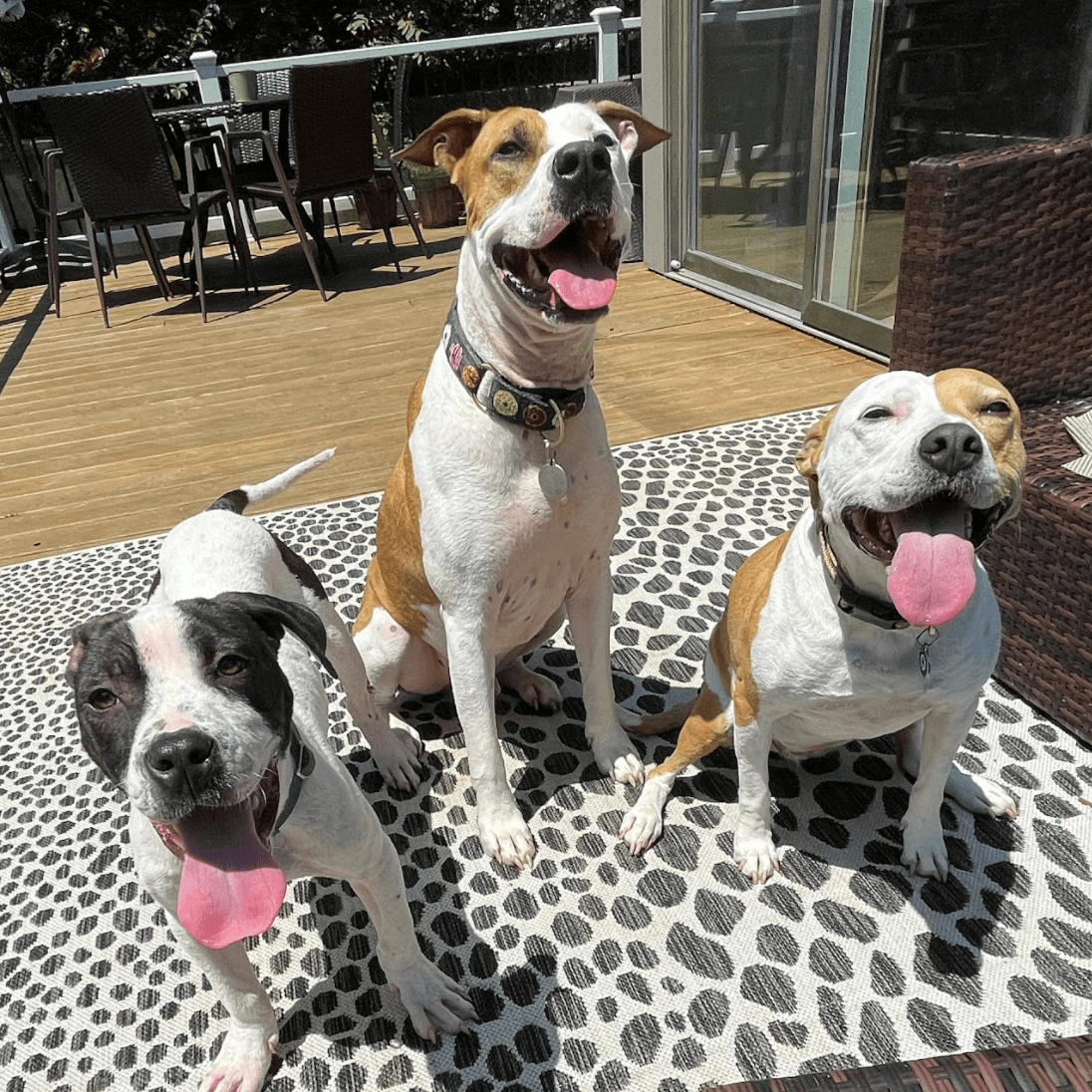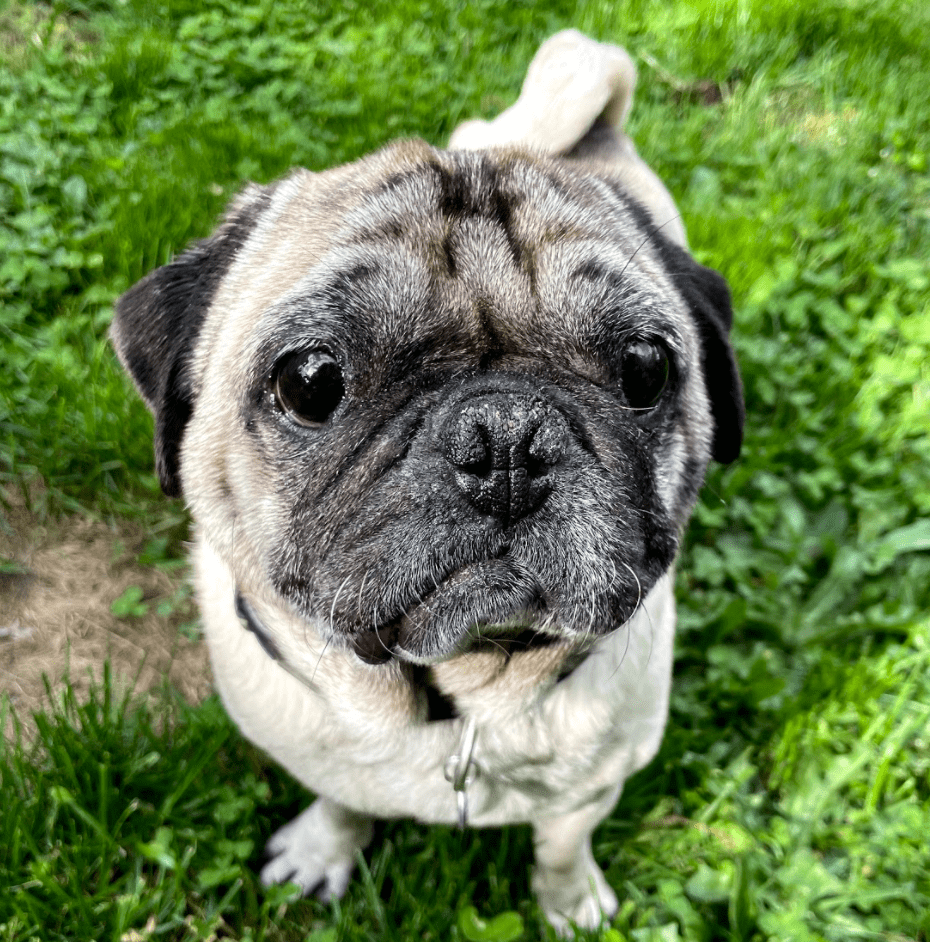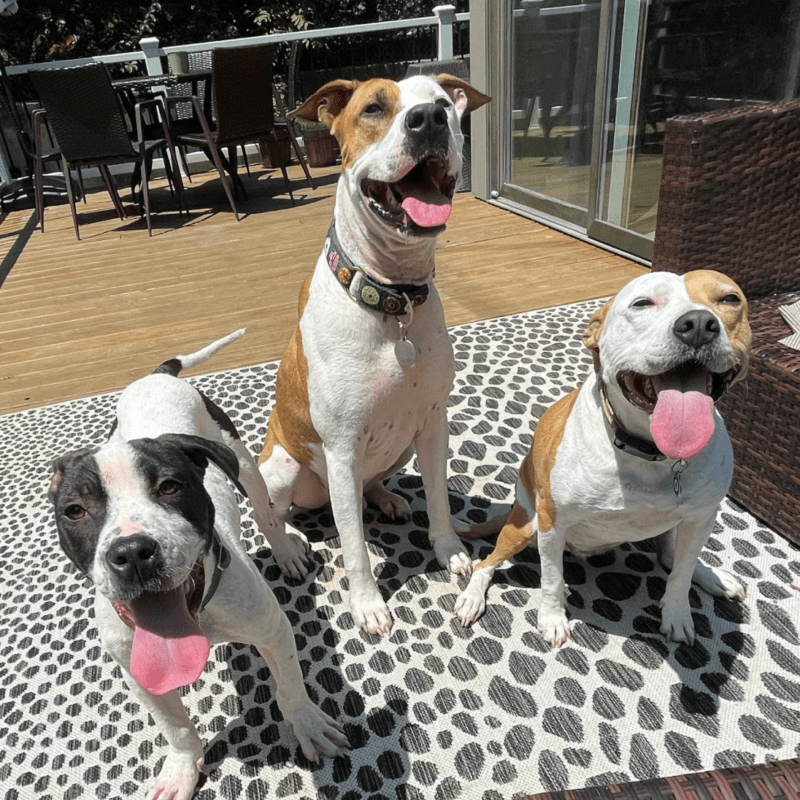With the hottest weeks of the year upon us in New Jersey, we, alongside local veterinarian Dr. Colette Brazer of Verona and Montclair Animal Hospitals, are here to help keep your dog safe. Read on to understand the signs of overheating, as well as what to do if your dog does overheat or becomes dehydrated.

How to Avoid Overheating
Most importantly, let’s discuss how to protect your pet from overheating before it happens. Take note of the situations below to help ensure that this dangerous medical emergency never happens to you and your furry friend.
- – Don’t leave your dog in the car! Even when it’s cool outside and the window is cracked, the interior temperatures of cars climb quickly and dangerously to much higher temperatures than you think. If you have to run out, leave your pup at home. He or she won’t mind if it’s what’s keeping him or her safe.
- – When it’s hot and humid, keep your dog indoors. While we know you want to enjoy the nice weather with your best friend, it may be too dangerous and is not worth the risk. In addition, avoid heavy exercise on hot, humid days and take your walks in the early morning and later at night when it is cooler.
- – When you are outside with your dog, make sure he or she has access to shade and water at all times.
Read More: A Guide to Dog Walkers in Montclair + Beyond
Dr. Brazer has a special note for brachycephalic breeds and recommends caretakers be extremely careful with them in the heat. Due to their facial structure, their ability to pant, which is a dog’s way of sweating, is not great so they overheat very easily.
If your dog still has on the “quarantine fifteen” and/or is obese, be extra careful as overweight pets also have a harder time and overheat more easily.
Signs of Overheating
While enjoying the beautiful weather is a positive, enjoyable experience for you and your dog, making sure he or she is safe is important. Here is what Dr. Brazer says are the signs to look out for:
- – Distress
- – Excessive panting
- – Restlessness
- – Drooling and/or foaming from the mouth and/or nostrils
- – Weakness; unsteady gait
- – Blue, purple, or bright red gums
- – Collapse
- – Seizures
- – Bruising and bleeding (their ability to clot fails when they overheat)
- – GI issues (i.e. profuse, bloody diarrhea, vomiting)
Heat exhaustion and dehydration in dogs are just as dangerous for them as they are for humans. It can cause sepsis, organ failure, and even death.

What to Do If Your Pet is Overheating
Don’t panic! Dr. Brazer has a plan:
- – Move your dog to a shaded, cool environment, preferably in air conditioning
- – Slowly cool your pup by placing cool, wet towels over the hairless regions of your pet’s body
- – Direct a fan onto your dog
- – Go directly to the nearest vet. As mentioned above, pets who overheat are at risk of experiencing severe complications and multi-organ failure. He or she may need IV fluid therapy, antibiotics, transfusions, oxygen, seizure care, etc. so get to a vet as quickly as possible
- – Try to get a rectal temperature. Dogs who are overheating typically have a temperature greater than 105ºF. Stop active cooling once the dog’s body temperature reaches 102-103ºF (38.8-39.4ºC) or it can cause hypothermia.
See More: What to Do if You Lose a Pet in the Montclair Area
What Not to Do If Your Pet is Overheating
While you may think getting your dog’s temperature down as quickly as possible is the way to go, it actually can cause more harm than good. Dr. Brazer says, “Do not over-cool the pet too rapidly (i.e. avoid ice baths) because this can cause vasoconstriction which decreases heat loss.” Instead, use the steps above and get your dog to the nearest veterinary office.
Paw Patrol
Some of our readers noted that they were concerned their dogs may develop sores from walking on the hot pavement. Dr. Brazer noted that, in her professional experience, she’s rarely seen this issue from dogs who just walk on hot pavement.
Dr. Brazer goes on to say, “The times I see sores are with dogs who run aggressively on hot pavement and do sharp turns (like playing fetch on pavement) or hike/hunt on sharp gravel/hot rocks. Most dogs’ paws acclimate well, even those who live in Florida. They may be more vulnerable at the beginning of the summer if they’ve been indoors and off-pavement all winter and spring.” With this in mind, limit your games of fetch and zoomie sessions to cooler, more paw-friendly grassy areas.
Stay safe this summer and enjoy this beautiful weather with your dog-child with these tips in mind.














